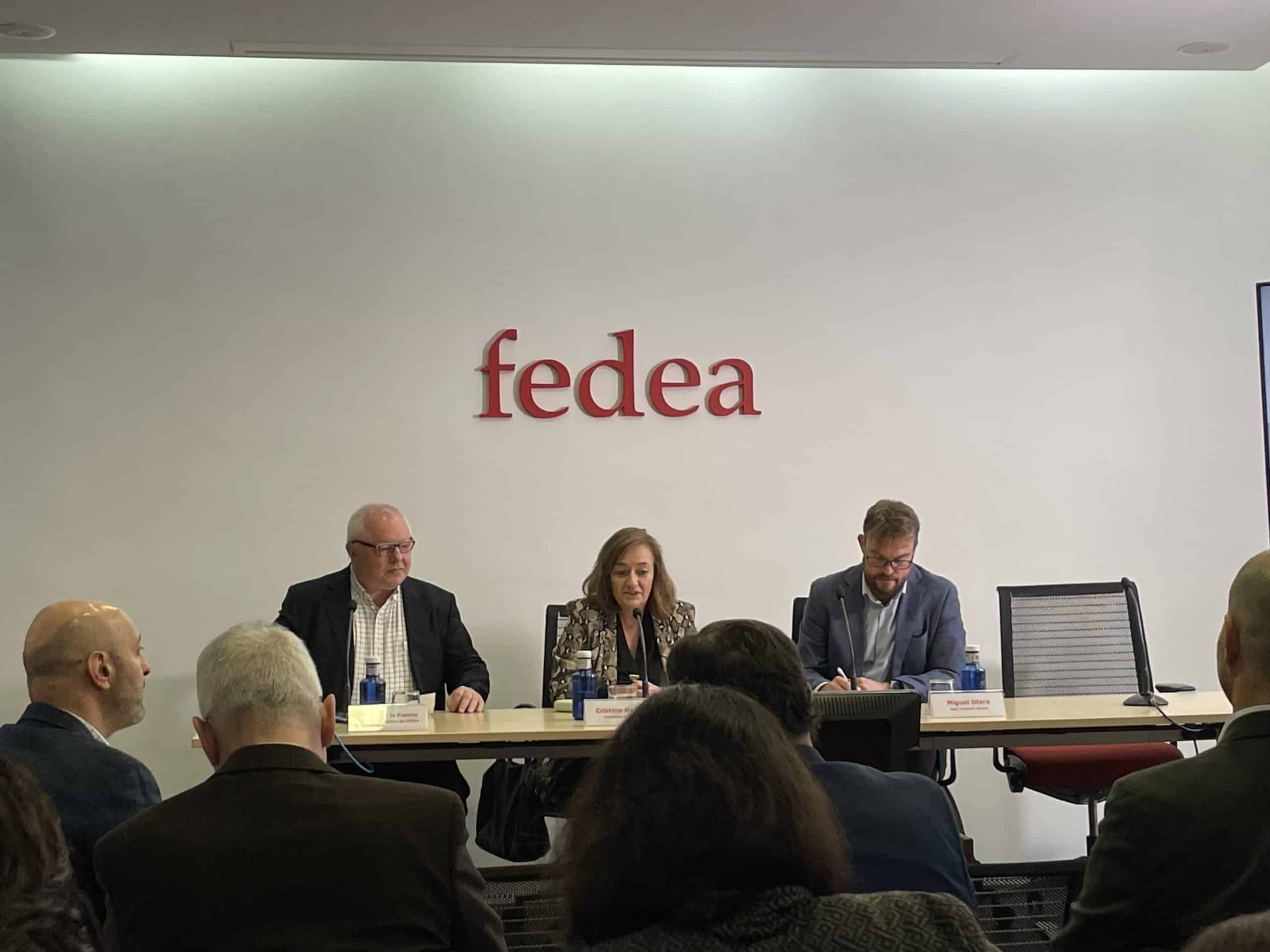
The president of the Independent Authority for Fiscal Responsibility (AIReF), Cristina Herrero, took part today in a workshop on fiscal rules organised by Fedea, in which she stressed the need to strengthen the role of the Independent Fiscal Institutions (IFIs) in view of the reform of the fiscal framework at European and national level. In her opinion, these institutions will be the integrating link between the general framework that is established and the differentiated national reality of each country.
In Spain, this role as an integrating link will be even more relevant given the country’s decentralisation. AIReF not only has the capacity to assess the underlying assumptions on which countries’ future fiscal and structural plans will be based. It also has the capacity to contribute to sustainability analysis and the definition of medium-term pathways. “Detailed national knowledge is needed to define paths for each administration,” she said.
The president began her speech by highlighting the complicated situation of Spain’s public finances after the succession of crises in recent years. Although public debt ratios have been falling for several quarters, they remain at very high levels and financing conditions are tightening. Moreover, new spending commitments are approaching due to factors such as the ageing of the population, the ecological transition, or strategic and military challenges.
Against this background, the reform of the EU fiscal framework has been put forward. The published guidelines have favourable elements, such as the focus on sustainability, the strengthening of the medium-term dimension, the setting of a single fiscal surveillance variable (primary expenditure net of revenue measures) and the increased national ownership through the setting of binding fiscal paths by Member States in return for more demanding enforcement.
However, the guidelines also include some elements of concern, such as the role that could be given to IFIs. The Commission first proposed a greater role for this type of institutions when assessing ex ante the assumptions of the adjustment plans, which have been diluted in the Council conclusions. In this respect, the president of AIReF pointed out that the IFIs can provide relevant technical elements when making long-term projections without participating in the design of economic policy.
National fiscal framework
The reform of the European framework will have to be declined to the national framework, taking into account its singularities due to the decentralised model. However, Cristina Herrero pointed out that there are elements of the national framework that can be revised without waiting for the European reform, such as strengthening the Stability Programme as a real planning instrument and establishing a system of realistic and credible objectives that reflect the fiscal reality of each administration.
In addition, progress can be made in the review of the coordination mechanisms (Fiscal and Financial Policy Council and the National Commission for Local Administration) and the expenditure rule; the reform of the regional and local financing system; greater attention to the medium term and to the growth and quality of public finances; and the improvement of the budgetary process. Cristina Herrero highlighted the importance of paying special attention to consistency between fiscal rules, as a new expenditure rule has been proposed for Social Security.
In conclusion, the president pointed out the need to strengthen AIReF’s role in supervision, reinforcing its involvement in the different phases of the budget cycle; and as a body that assesses the quality of public finances, adapting its framework to this new reality and ensuring the relevance and monitoring of the evaluations. Finally, she again highlighted AIReF’s role as an integrating link in the future fiscal framework, a key role in a decentralised country.






